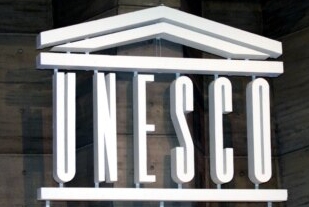
UNESCO
UNESCO, AHI collaborate to enhance Nigeria’s family life,HIV education
The United Nations Educational, Scientific and Cultural Organisation (UNESCO) has teamed up with Action Health Incorporated (AHI), a non-profit NGO dedicated to improving the health of Nigerian adolescents to deepen Family Life and HIV Education (FLHE) in Nigeria.
In 2022, UNESCO commissioned The Torchlight Collective to study the short and intermediate-term outcomes of national programmes in six countries, including Nigeria, focusing on education for life skills, family life, health, sexuality, and relationships.
During the dissemination of the workshop’s outcomes in Lagos, Abdourahamane Diallo, the head of the UNESCO Office in Abuja, highlighted UNESCO’s efforts in improving learning outcomes in Nigeria through policy improvements, curriculum development, teacher training, and strengthening systems.
Diallo emphasised UNESCO’s commitment to gender equality, human rights, and addressing discriminatory gender and social norms, including harmful practices like child marriage and female genital mutilation.
Jamiu Alli-Balogun, the Lagos State commissioner for primary and secondary education, acknowledged the empowerment of students with the knowledge and skills necessary for informed decisions regarding their sexual and reproductive health issues through FLHE.
Alli-Balogun disclosed Lagos State’s adoption of FLHE into its scheme of work in basic science, social studies, and civic education, among other subjects, for easy dissemination to students.
On her part, Adenike Esiet, co-founder of Action Health Incorporated (AHI), highlighted the NGO’s commitment to promoting the health and well-being of young people, particularly in catalysing access to FLHE opportunities.
Her words: ”As the implementing partner for UNESCO’s FLHE programme in Lagos, AHI partnered with education district IV (Yaba) to conduct the study in schools within the district, aiming to provide insights and lessons to improve solutions for young people in the country.
”The Family Life and HIV Education (FLHE) study, approved by the National Council on Education (NCE) in 2004, involves trained teachers mainstreaming curriculum content into career subjects with the support of implementing partners.
”The technical workshop aimed to disseminate the findings to local stakeholders, fostering ownership of the report and addressing recommendations commissioned in 2023.”
In a related development, the United States Centre for Disease Control and Prevention (USCDC) has empowered 734,000 individuals living with HIV or affected by the disease through its Orphans and Vulnerable Children (OVC) intervention program across 19 states in Nigeria.
Femi Oke, Programme Specialist at CDC Nigeria, shared this achievement during a media conference in Abuja, stressing the program’s focus on empowering vulnerable populations economically and improving their overall well-being.
Oke explained that the OVC program facilitates the creation of saving groups within communities, comprising 15 to 25 individuals who meet regularly to save and borrow for emergencies, paying monthly interest as agreed by the group.
